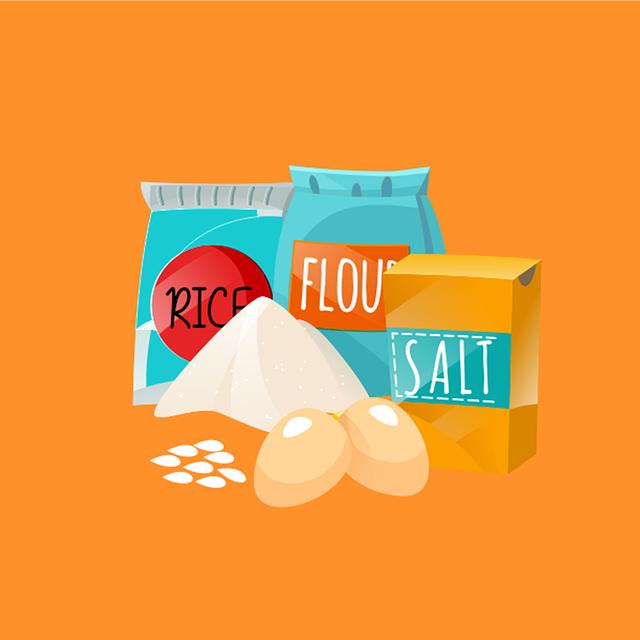Is Rice Flour Bad for You? The Gluten-Free Health Debate
If you’re navigating the world of gluten-free eating, you’ve likely come across rice flour as a popular alternative in recipes. But is rice flour truly a healthy choice? The debate over whether rice flour is bad for you has stirred up conflicting opinions among health enthusiasts and experts. Let’s delve into the gluten-free health debate surrounding rice flour to separate fact from fiction and help you make informed decisions about your diet.
Contents
- – Understanding the Basics of Rice Flour: What You Need to Know
- Is Rice Flour Bad for You? The Gluten-Free Health Debate
- – Debunking the Myths: The Truth About Rice Flour and Your Health
- – The Benefits of Gluten-Free Eating: How Rice Flour Fits In
- – Potential Health Concerns: Exploring Risks and Counterarguments
- – Making Informed Choices: Tips for Incorporating Rice Flour in a Balanced Diet
- – The Verdict: Is Rice Flour Bad for You or a Healthy Alternative?
- – Consult with a Nutritionist: Personalized Recommendations for Your Dietary Needs
- Key Takeaways
– Understanding the Basics of Rice Flour: What You Need to Know
Is Rice Flour Bad for You? The Gluten-Free Health Debate
Rice flour is a popular gluten-free alternative that can be used in a variety of dishes, but is it bad for you? The answer to this question depends on your individual health needs and dietary restrictions.
Here are some key points to consider when deciding if rice flour is a good option for you:
- Rice flour is naturally gluten-free, making it a safe option for individuals with celiac disease or gluten intolerance.
- Rice flour is high in carbohydrates and lower in protein compared to wheat flour, so it may not be suitable for individuals looking to increase their protein intake.
- Some studies have linked high levels of arsenic in rice products, including rice flour, to potential health risks, so it’s important to consume rice flour in moderation.
| Pros of Rice Flour | Cons of Rice Flour |
|---|---|
| Gluten-free | High in carbohydrates, low in protein |
– Debunking the Myths: The Truth About Rice Flour and Your Health
One common misconception about rice flour is that it is unhealthy due to its high carbohydrate content. While rice flour is indeed a high-carb ingredient, it is important to note that it is also naturally gluten-free, making it a great alternative for those with gluten sensitivities or celiac disease.
Moreover, rice flour is a good source of essential nutrients such as iron, manganese, and magnesium. It is also low in fat and cholesterol, making it a healthy choice for those looking to maintain a balanced diet. Additionally, rice flour is easily digestible, making it a suitable option for individuals with digestive issues.
Overall, when consumed in moderation as part of a well-balanced diet, rice flour can be a healthy and beneficial addition to your kitchen pantry. It is important to debunk the myths surrounding rice flour and recognize the potential health benefits it can offer, especially for those following a gluten-free lifestyle.

– The Benefits of Gluten-Free Eating: How Rice Flour Fits In
Many people question whether rice flour is bad for you, especially in the context of gluten-free eating. The truth is, rice flour can be a beneficial alternative for those with gluten intolerances or allergies. Here are some key benefits of incorporating rice flour into your gluten-free diet:
- Easy Digestion: Rice flour is naturally gluten-free, making it easier on the digestive system for those with gluten sensitivities.
- Versatile: Rice flour can be used in a variety of recipes, from baking to thickening sauces, making it a versatile ingredient in gluten-free cooking.
- Nutrient-Rich: Rice flour contains essential nutrients such as iron, magnesium, and B vitamins, providing a healthy alternative to traditional wheat flours.
| Iron: | 10% |
| Magnesium: | 8% |
| Vitamin B6: | 15% |
Overall, when used in moderation and as part of a balanced diet, rice flour can be a healthy and delicious option for those looking to avoid gluten in their meals.
– Potential Health Concerns: Exploring Risks and Counterarguments
Many people turn to rice flour as a gluten-free alternative to traditional wheat flour. While rice flour is indeed free of gluten, there are potential health concerns to consider when incorporating it into your diet. Some studies suggest that consuming large amounts of rice flour may expose you to higher levels of arsenic, a toxic substance that can have detrimental effects on your health.
However, it’s important to note that there are counterarguments to this claim. Proponents of rice flour argue that the benefits of a gluten-free diet outweigh the potential risks associated with arsenic exposure. Additionally, there are ways to mitigate the risk of arsenic contamination in rice flour, such as choosing organic or sustainably sourced varieties. Ultimately, whether or not rice flour is bad for you depends on your individual health needs and dietary preferences.
| Pros | Cons |
|---|---|
| Gluten-free alternative | Potential exposure to arsenic |
| Easy to digest | May not be suitable for individuals with arsenic sensitivity |
– Making Informed Choices: Tips for Incorporating Rice Flour in a Balanced Diet
Many people are turning to rice flour as a gluten-free alternative to traditional wheat flour, but some may wonder: is rice flour bad for you? The answer is not so simple. While rice flour is naturally gluten-free and can be a great option for those with celiac disease or gluten sensitivity, it is important to consider the overall balance of your diet when incorporating rice flour.
Here are some tips for incorporating rice flour into a balanced diet:
- Choose whole grain rice flour over refined white rice flour for added fiber and nutrients.
- Combine rice flour with other gluten-free flours like almond flour or coconut flour for a more well-rounded nutritional profile.
- Experiment with different recipes and cooking methods to keep your diet varied and interesting.

– The Verdict: Is Rice Flour Bad for You or a Healthy Alternative?
One of the most popular gluten-free alternatives to traditional wheat flour is rice flour. However, the debate still rages on about whether rice flour is actually a healthy choice or not. Let’s take a closer look at the verdict on whether rice flour is bad for you or a healthy alternative.
**Pros of Rice Flour:**
- Gluten-free option for those with celiac disease or gluten sensitivity
- Rich in carbohydrates for energy
- Contains some essential vitamins and minerals like iron and B vitamins
**Cons of Rice Flour:**
- Lacks fiber compared to whole grain flours
- Higher glycemic index which may impact blood sugar levels
- Potential for arsenic contamination, particularly in brown rice flour
| Aspect | Verdict |
|---|---|
| Fiber Content | Low |
| Glycemic Index | High |
| Nutritional Value | Varies |

– Consult with a Nutritionist: Personalized Recommendations for Your Dietary Needs
When it comes to gluten-free diets, many people wonder if rice flour is a healthy alternative. While rice flour is naturally gluten-free and can be a great option for those with gluten sensitivities or celiac disease, it’s important to consider the overall nutritional profile of this ingredient.
Rice flour is a versatile ingredient that can be used in a variety of recipes, from baked goods to thickening sauces. It is high in carbohydrates and low in protein, making it a good choice for those looking to increase their carbohydrate intake while avoiding gluten. However, it is also important to note that rice flour lacks the same level of nutrients, such as fiber and protein, that whole grain flours may provide.
Consulting with a nutritionist can help you determine if incorporating rice flour into your diet is the right choice for you. They can provide personalized recommendations based on your dietary needs and health goals, ensuring that you are making informed decisions about your food choices.
Key Takeaways
In conclusion, the debate over whether rice flour is bad for you in a gluten-free diet is complex and multifaceted. While rice flour is a safe and versatile option for those with gluten intolerances or celiac disease, it is important to consider its potential impact on blood sugar levels and overall nutritional value.
Ultimately, moderation and balance are key when incorporating rice flour into your diet. Be sure to pair it with other nutritious ingredients and consult with a healthcare professional if you have any concerns about its effects on your health. Remember, every body is unique, so listen to yours and make informed choices that support your well-being.
So, is rice flour bad for you? The answer depends on individual circumstances and overall dietary choices. Stay informed, stay curious, and most importantly, stay empowered in your health journey.







